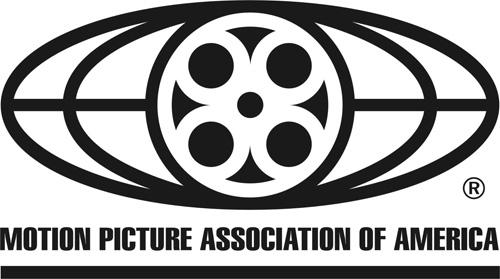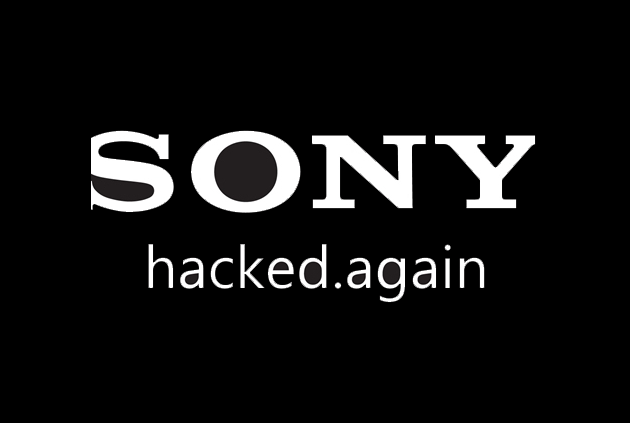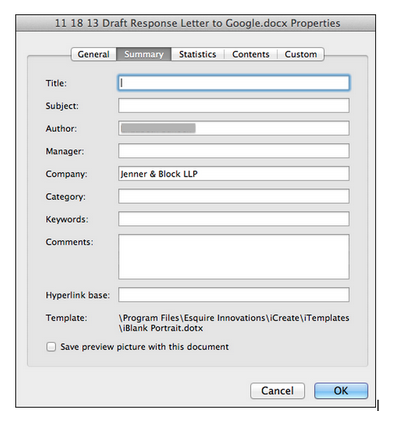MPAA Hits “Shameful” Google Over Sony Hacking Revelations – Update
UPDATED, 7:50 PM: The Motion Picture Association of America tonight struck back at accusations from the tech giant that it was seeking to “censor” the Internet and suppress free speech based on information from emails leaked in the Sony hacking. “Google’s effort to position itself as a defender of free speech is shameful,” an MPAA spokesperson said in a statement to Deadline tonight (read the full statement below).

A Google executive in a blog post earlier Thursday lambasted the studio lobby group and some of Hollywood’s heavyweights for an alleged program that they had instituted called “Project Goliath.” The so-called secret tactic was revealed late last week in communications that came out of the massive hacking of Sony that went public November 24. Best to just let this war or words speak for itself. Here’s the MPAA’s response:
“Google’s effort to position itself as a defender of free speech is shameful. Freedom of speech should never be used as a shield for unlawful activities and the internet is not a license to steal. Google’s blog post today is a transparent attempt to deflect focus from its own conduct and to shift attention from legitimate and important ongoing investigations by state attorneys general into the role of Google Search in enabling and facilitating illegal conduct – including illicit drug purchases, human trafficking and fraudulent documents as well as theft of intellectual property. We will seek the assistance of any and all government agencies, whether federal, state or local, to protect the rights of all involved in creative activities.”
PREVIOUSLY, 2:29 PM: Sony may have pulled the plug on The Interview as a response to the massive hacking of the studio, but a certain tech giant today has a digital bone to pick with that company and the rest of Hollywood. “We are deeply concerned about recent reports that the Motion Picture Association of America (MPAA) led a secret, coordinated campaign to revive the failed SOPA legislation through other means, and helped manufacture legal arguments in connection with an investigation by Mississippi State Attorney General Jim Hood,” Google’s SVP and General Counsel Kent Walker said in a blog post Thursday.
News of what has been called “Project Goliath” emerged in emails that were leaked out from the Sony hack that was

revealed on November 24. It appears to be a tactic against Silicon Valley’s biggest by Universal, Sony, Fox, Paramount, Disney, Warner Bros and their lobby group the MPAA to revive the failed anti-piracy Stop Online Piracy Act of 2011. The plan seems to have been, from the leaked emails, to get state attorneys General to swarm Goliath with bad press and court action.
“While we of course have serious legal concerns about all of this, one disappointing part of this story is what this all means for the MPAA itself, an organization founded in part ‘to promote and defend the First Amendment and artists’ right to free expression’,” added the Google exec’s post Thursday. “Why, then, is it trying to secretly censor the Internet?”
The MPAA had no comment on the Google exec’s remarks.
Related North Korea Behind Massive Cyber Attack Against Sony, Feds Say
Here is Walker’s full blog post:
We are deeply concerned about recent reports that the Motion Picture Association of America (MPAA) led a secret, coordinated campaign to revive the failed SOPA legislation through other means, and helped manufacture legal arguments in connection with an investigation by Mississippi State Attorney General Jim Hood.
Almost three years ago, millions of Americans helped stop a piece of congressional legislation—supported by the MPAA—called the Stop Online Piracy Act (SOPA). If passed, SOPA would have led to censorship across the web. No wonder that 115,000 websites—including Google—participated in a protest, and over the course of a single day, Congress received more than 8 million phone calls and 4 million emails, as well as getting 10 million petition signatures.
Here is what recent press reports have revealed over the past few days about the MPAA’s campaign:
The MPAA conspired to achieve SOPA’s goals through non-legislative means
According to The Verge, “at the beginning of this year, the MPAA and six studios … joined together to begin a new campaign” to figure how it could secretly revive SOPA. It “joined together to begin a new campaign” to achieve wholesale site-blocking by “[convincing] state prosecutors to take up the fight against [Google].” The movie studios “budgeted $500,000 a year towards providing legal support”—and the MPAA later sought up to $1.175 million for this campaign.The MPAA pointed its guns at Google
With that money, the MPAA then hired its long-time law firm Jenner & Block to go after Google while also funding an astroturf group—the Digital Citizens Alliance—with the same goal of attacking Google. (Source: The New York Times).The MPAA did the legal legwork for the Mississippi State Attorney General
The MPAA then pitched Mississippi State Attorney General Jim Hood, an admitted SOPA supporter, and Attorney General Hood sent Google a letter making numerous accusations about the company. The letter was signed by General Hood but was actually drafted by an attorney at Jenner & Block—the MPAA’s law firm. As the New York Times has reported, the letter was only minimally edited by the state Attorney General before he signed it. Here is what the document showed about its true origin:Even though Google takes industry-leading measures in dealing with problematic content on our services, Attorney General Hood proceeded to send Google a sweeping 79-page subpoena, covering a variety of topics over which he lacks jurisdiction. The Verge reported that the MPAA and its members discussed such subpoenas and certainly knew about this subpoena’s existence before it was even sent to Google.
Attorney General Hood told the Huffington Post earlier this week that the MPAA “has no major influence on my decision-making,” and that he “has never asked [the] MPAA a legal question” and “isn’t sure which lawyers they employ.” And yet today the Huffington Post revealed that Attorney General Hood had numerous conversations with both MPAA staff and Jenner & Block attorneys about this matter.
While we of course have serious legal concerns about all of this, one disappointing part of this story is what this all means for the MPAA itself, an organization founded in part “to promote and defend the First Amendment and artists’ right to free expression.” Why, then, is it trying to secretly censor the Internet?
Related stories
Al Sharpton Meets With Amy Pascal: Will Work To Address Hollywood's “Cultural Blindness”
Microsoft's Xbox One Holiday Sales Pass Sony's PS4
Paramount Cancels 'Team America' Showings, Theaters Say
Get more from Deadline.com: Follow us on Twitter, Facebook, Newsletter


